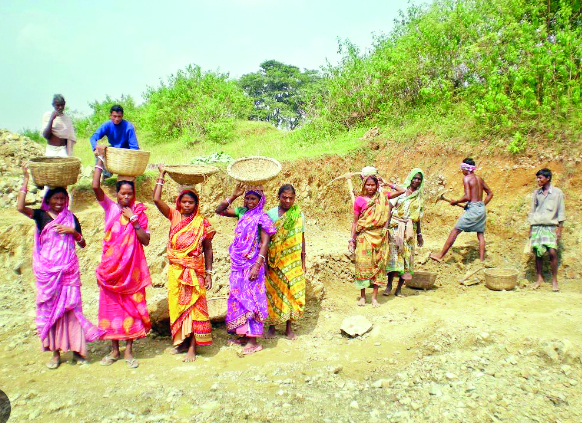‘MGNREGS work demand not directly correlated to rural distress’

New Delhi: MGNREGS work demand does not directly correlate with increased rural distress at a micro-level and data from Financial Year 2024 shows states like Kerala and Tamil Nadu, with relatively lesser poor population, use more funds under the flagship rural employment scheme, according to the Economic Survey.
The survey found there is a marked variation in the performance of the Mahatma Gandhi National Rural Employment Guarantee Scheme (MGNREGS) across states.
Multiple research studies have been conducted to find a definite cause for such unevenness in outcomes but a satisfactory explanation has not been found, said the survey which was presented in Parliament on Monday.
It said while some reports suggest that MGNREGS demand is indicative of rural distress, insights from MGNREGS Data for FY-24 shows that although Tamil Nadu has less than one per cent of the country’s poor population, it accounted for nearly 15 per cent of all MGNREGS funds released.
Similarly, Kerala, with only 0.1 per cent of the poor population, used almost 4 per cent of the MGNREGS funds, the survey report showed.
Together, these states generated 51 crore person-days of employment.
In contrast, Bihar and Uttar Pradesh, with about 45 per cent (20 percent and 25 percent respectively) of the poor population, accounted for only 17 per cent (six percent and 11 percent respectively) of MGNREGA funds and generated 53 crore person-days of employment.
It said the correlation coefficient between state-wise multidimensional poverty index and person-days generated is calculated to be only 0.3, indicating that MGNREGS fund usage and employment generation are not proportional to poverty levels.
Calculations also reveal that there is little correlation between MGNREGS fund
usage and rural unemployment rates. According to the Data from FY-23, states with the highest rural unemployment rates did not necessarily use the most MGNREGS funds.
“Contrary to the popular narrative, the data does not support the idea that states with high rural unemployment rates in FY22 sought more MGNREGS funds in FY23,” the survey said.
The scheme data also revealed that minimum wage fixation is ad-hoc and not correlated with per-capita income or poverty headcount ratio.



